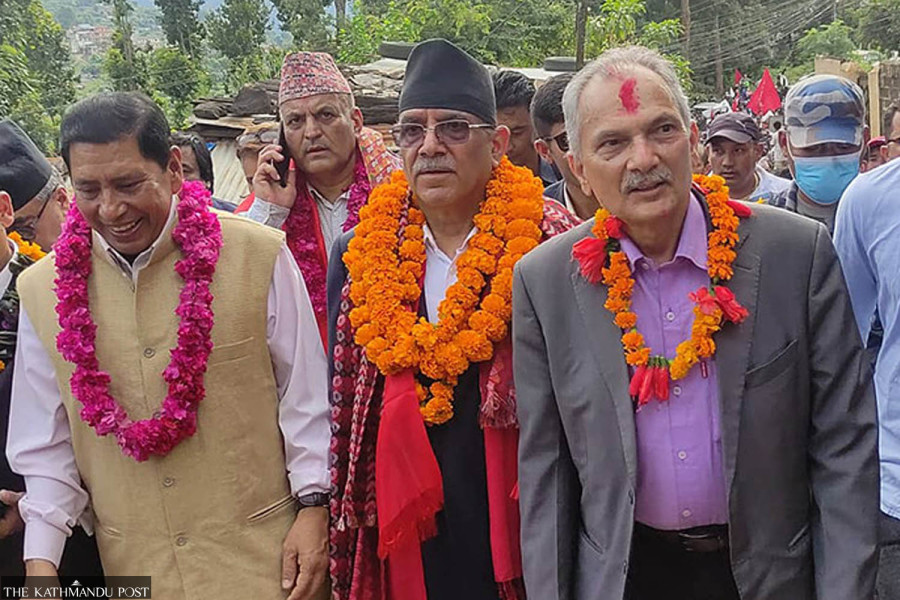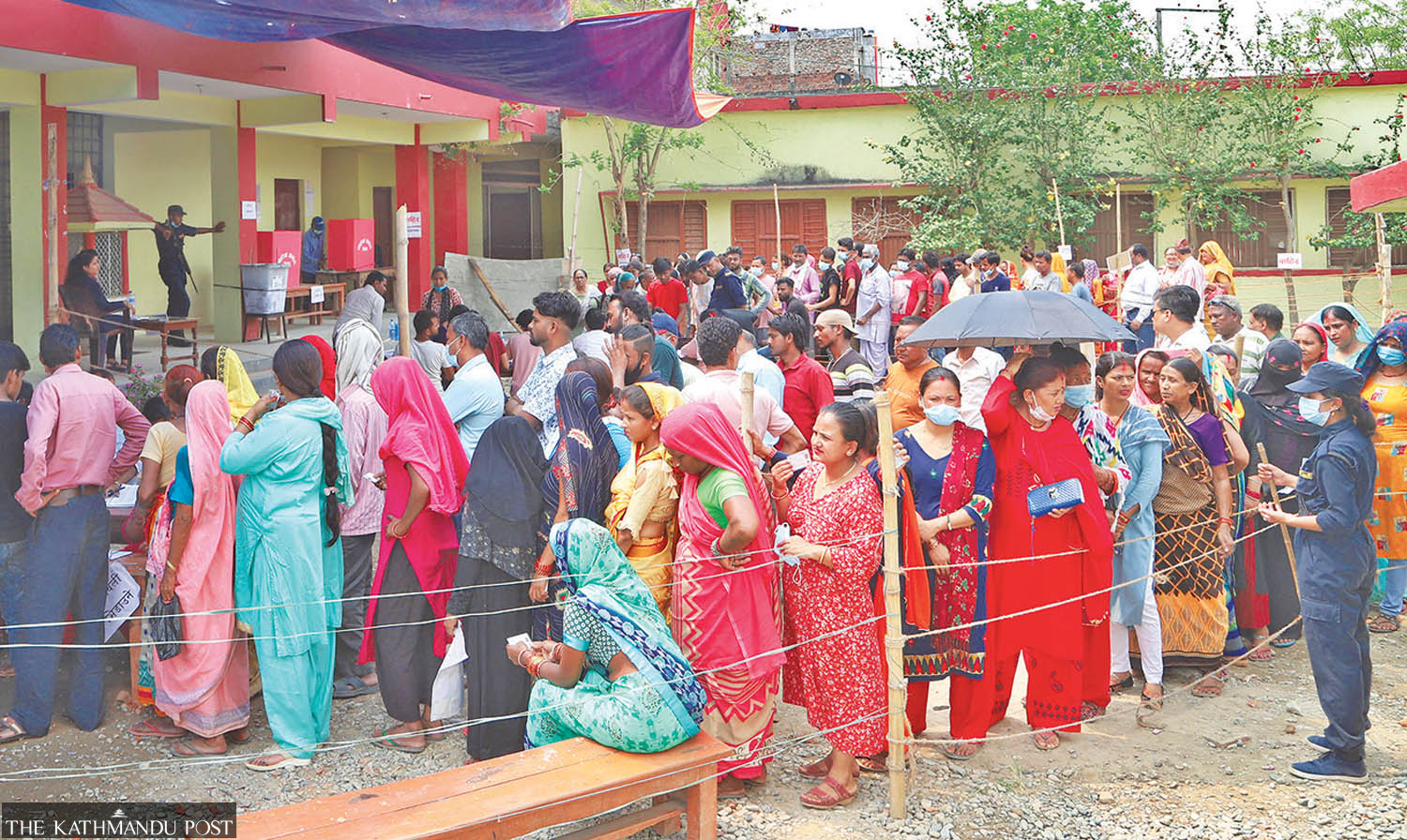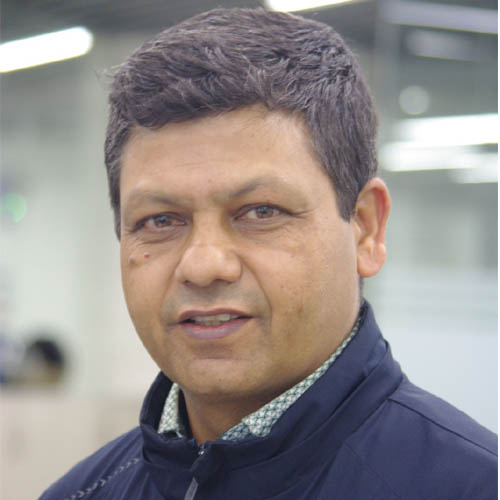Politics
The centrality of elections in political process
Historically, the parties that shied away from elections have become irrelevant.
Thira Lal Bhusal
With the filing of direct election candidacies on Sunday, preparations for the November 20 federal and provincial elections have entered a decisive phase.
There are unwanted aspects about the upcoming elections. Even after the filing of the nominations on Sunday, commentators were quick to point out the paucity of women and representatives of the marginalized communities among the nominees. Many of the candidates have been repeatedly tried and found wanting—and yet they are still getting another shot, while the more deserving ones are sidelined. There is also a glaring shortage of young candidates.
Yet one thing that is most certainly positive about these elections is their widespread adoption by political forces of all stripes.
People's mandate is becoming increasingly important to thrive in Nepali politics. This central tenet of democratic politics has not always been so obvious in the Nepali context.
It's been over seven decades since democracy was first established in Nepal. In the time span, the democratic system has witnessed various ups and downs. It is still struggling to sustain itself as a stable, institutionalised system.
Nepali citizenry, however, has shown strong attachment to elections. Be it Panchayat rulers, the kings, or political parties, no one could ignore the power of elections. This is also not to rule out the use of the ballot as a strategic tool by political forces.
Over seven decades of history suggests that those who succeeded in winning people's trust through elections have had long and successful careers. Conversely, those who boycotted or shied away from open competition have faded away.
Kings couldn’t ignore
Even the monarchs who 'killed' democracy and imposed partyless autocracy, conducted polls to show that their rule was based on democratic principles and people's mandate.
King Mahendra, who dissolved the elected parliament in 1960, jailed the elected prime minister and imposed an autocratic system, held local elections in a partyless system. Local representatives were elected periodically. By strengthening relations with democratic countries like the UK and the US, he tried to get democratic credentials in the eyes of the international community.
In 1980, Birendra agreed to conduct a referendum to allow people to choose between multiparty democracy and the partyless Panchayat instituted by his father, King Mahendra. In a tight race, the partyless Panchayat won. The misuse of the entire state apparatus to help the Panchayat win was widely reported.
But the then Nepali Congress leader BP Koirala exhibited statesmanship by accepting the verdict.
King Birendra also conducted polls to elect the Rastriya Panchayat that worked as the national legislature. He also conducted local polls.
In 2005, King Gyanendra staged a coup, imposed a state of emergency, jailed leaders and took over all executive powers. Political forces agitated. Then, he announced municipal elections. But major political parties boycotted the polls. The public didn't participate either, mainly at the parties' call. The elections, as such, didn’t get legitimacy and the king's move turned out to be a 'farce'.
Be it King Mahendra, King Birendra or King Gyanendra, they held elections for two reasons. First, they wanted to give a message to the international community that they had people’s mandate. Second, they knew that Nepali people wanted to choose their representatives through elections.
Banned parties participate
Even when political parties were fighting against monarchy and the partyless Panchayat for the establishment of democracy, they participated in the elections for the national legislative body, the Rastriya Panchayat, and local bodies. The underground parties fielded their candidates even though the polls were conducted in a partyless system. They used elections to strengthen their connections with the public.
Fame and power
The first parliamentary election of Nepal in 1959 helped establish Nepali Congress. The party secured two-thirds majority in the 109-member House of Representatives. Charismatic leader BP Koirala became the country's first elected prime minister and introduced several bold reform measures.
But King Mahendra not only staged a coup and dissolved parliament but also jailed the prime minister and imposed the partyless Panchayat system. It took 30 years of struggle to reinstate the democratic parliament. Even after restoration of democracy, the Congress became the largest party, winning majority seats. Despite setbacks, the party has remained a leading political force of Nepal.
Until the 1980s, communist parties were in a dilemma about whether to participate in parliamentary elections. CPN (Marxist-Leninist) was one such confused organisation. Also, there were apprehensions at national and international levels about the communist parties' policies. When Madan Bhandari rose to the party's leadership, he gave a clear direction to the CPN (Marxist-Leninist), stating that even communists can secure state power through democratic elections. A section of communists criticised him as a revisionist. But he didn't falter.
The party merged with the then CPN (Marxist) to form the CPN-UML in 1991. In the first election after the reinstatement of democracy, the UML emerged as the second-largest party and established itself as a strong competitor against Congress. As the UML has consistently been in favour of electoral politics, it has established itself as a strong democratic force despite its communist ideology.
In the general election of 1991, UML General Secretary Bhandari stole the limelight by defeating incumbent prime minister Krishna Prasad Bhattarai. The result surprised the international community as well. The rise of Bhandari and UML's strong performance proved to be a turning point in the party's history.
The UML had legendary leaders like Mohan Chandra Adhikari, who was regarded as Nepal's Nelson Mandela as he served over 16 years in jail during the struggle for the restoration of democracy. When multiparty competition started, young leaders like Bhandari excelled while leaders like Adhikari were left behind. What differentiated them was that Bhandari won public trust through elections but Adhikari could not.
Transforming Maoists
In 1996, the Maoists started an armed insurgency, partly to destroy the parliamentary system. Fast forward to 2021, the Maoist party was one of the forces that took to the street and sought Supreme Court's support to reinstate parliament to "safeguard parliamentary supremacy" when the then Prime Minister KP Oli dissolved the House. Now they do everything (including forging alliances with political forces of all hues) to win elections. Pushpa Kamal Dahal's desperation to find a safe constituency to get into the parliament and his readiness to do anything to ensure his daughter's electoral victory are evidence that even the Maoists, who once believed that power comes from the barrel of a gun, have invested all their efforts in gaining power through elections.
In 2008, the Maoists seemed apprehensive about contesting the Constituent Assembly elections. They put forward various conditions. The Assembly election had to be postponed multiple times due to Maoist threats of a boycott. Later, the Maoist success in the election surprised many. As things now stand, we hardly find any substantive difference between the Congress, the UML and the Maoists. It is the electoral system that transformed the Maoists so fast.
If the election success of 1959 was the base of the Congress and the 1991 polls of the UML, the election of 2008 can be taken as a base of the Maoists and Madhesi parties that helped them establish themselves in mainstream politics.
Since 1994, six communist leaders have become prime ministers through elections. Among the eight sitting and former prime ministers still alive, five are communists, one is a Congress leader, another from the Rastriya Prajatantra Party, and yet another is an independent.

Boycotts and boomerangs
While several political parties established themselves through elections, others have run away from the electoral race. Some are still following the boycott path. Parties including those led by Mohan Baidya, Netra Bikram Chand Biplab, Dharmendra Bastola and Bishwabhakta Dulal Aahuti have announced a boycott of upcoming elections.
But the home ministry and the Election Commission have concluded that the parties that have announced to boycott polls are no longer serious security threats.
In 1990, when UML participated in parliamentary elections, another communist party, the CPN-Masal, decided to stay away. The party was headed by Mohan Bikram Singh. The party that termed the change of 1990 ‘incomplete achievement’ decided to boycott the general elections of 1991, vowing to create ground for Constituent Assembly elections and seize powers from the king. However, a faction of the same party split and formed Ekata Kendra. The new party's electoral front Samyukta Janamorcha contested the elections and won nine seats. Krishna Bahadur Mahara and Lilamani Pokharel were among those elected.
In 1994, CPN-Masal's electoral front, the Rastriya Janamorcha, joined the electoral process. But in 1994, Ekta Kendra split. A splinter group that included Pushpa Kamal Dahal Prachanda, Baburam Bhattarai and Mahara started preparations for an armed insurgency while another faction of the same party participated in the elections. Narayankaji Shrestha, Amik Sherchan, Lilamani Pokharel were those who stuck to the electoral line.
Until 1990, the CPN (Marxist-Leninist), the CPN-Masal, and the Ekata Kendra were considered communist parties with near equal strength. After the polls, the UML emerged as an organisation parallel to the NC while other leftist parties were left behind.
In 2008 the Maoists left the UML behind as it achieved impressive success in the polls. But over the years, UML has prevailed in electoral politics and now it has left the Maoists behind.
The decision of the then CPN (Marxist-Leninist) to boycott the referendum in 1979 turned out to be wrong in the long run. The party is still blamed for indirectly supporting Panchayat by not backing the multi-party system. So it didn't commit that mistake after 1990.
Even the Congress had boycotted an election conducted by the King in 1981. But in later elections under the partyless Panchayat system, both the Congress and communists fielded their members as ‘independent candidates’.
Dahal vs Baidya
The Mohan Baidya-led party is the best example of how a party becomes irrelevant in open politics without public endorsement.
Baidya handed over leadership of a party to Dahal around 36 years ago. Even when Dahal led the insurgency, Baidya and Baburam Bhattarai were the two figures seen in tandem with Dahal. Some party members gave Baidya more respect for his integrity and clean image. But now he is nowhere in the scene. The CPN (Revolutionary Maoist) party that he leads has no influence in national politics. This is again because Baidya and his party are shy of elections.
His party hasn't participated in general elections since it was formed in 2012. Large sections of the Maoists accused Dahal of betraying Maoist cadres and supported Baidya’s bid to form a new revolutionary outfit in 2012. As Baidya could take them nowhere, most have returned to the mother party. Such is also the situation of the Biplab-led organisation and other splinter groups.
The Rastriya Janamorcha is the electoral front of the CPN-Masal. While Mohan Bikram Singh is party chief, Chitra Bahadur KC leads the party's electoral front. So Singh is KC's boss in the party. But as KC gets elected by the people, he overshadows his party chief Singh in the public eye. Singh now seems to have realised the importance of being elected. Therefore, he has been putting all efforts to establish his wife, Durga Paudel, through elections. The party sought support of the UML and Maoists to get her elected in 2017. Now it is seeking the backing of the Congress and Maoists for her re-election.
Time for principled stand
In the past six decades, Nepal conducted nine general elections including two during the partyless Panchayat system and two for Constituent Assembly.
After the restoration of democracy in 1990 and especially after the establishment of a republic in 2008, electoral success has become probably the most important factor for leaders to thrive in politics.
This is not at all a bad thing. The only rider is that political parties should not only see elections as tactical tools to secure power and perks. Their faith in elections should also reflect in their abiding commitment to the democratic process.




 13.12°C Kathmandu
13.12°C Kathmandu














